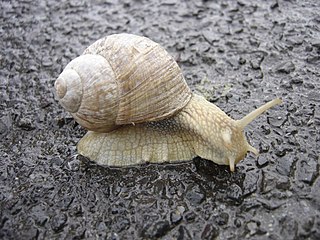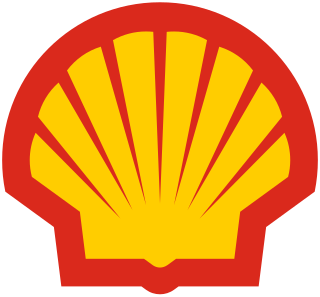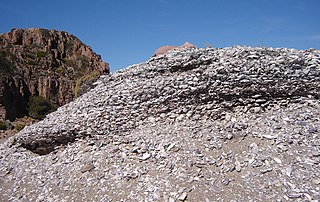
Bash is a Unix shell and command language written by Brian Fox for the GNU Project as a free software replacement for the Bourne shell. First released in 1989, it has been used as the default login shell for most Linux distributions. A version is also available for Windows 10 via the Windows Subsystem for Linux. It is also the default user shell in Solaris 11. Bash was also the default shell in all versions of Apple macOS prior to the 2019 release of macOS Catalina, which changed the default shell to zsh, although Bash currently remains available as an alternative shell.

The drum is a member of the percussion group of musical instruments. In the Hornbostel-Sachs classification system, it is a membranophone. Drums consist of at least one membrane, called a drumhead or drum skin, that is stretched over a shell and struck, either directly with the player's hands, or with a percussion mallet, to produce sound. There is usually a resonance head on the underside of the drum, typically tuned to a slightly lower pitch than the top drumhead. Other techniques have been used to cause drums to make sound, such as the thumb roll. Drums are the world's oldest and most ubiquitous musical instruments, and the basic design has remained virtually unchanged for thousands of years.
Ghost in the Shell is a Japanese cyberpunk media franchise based on the seinen manga series of the same name written and illustrated by Masamune Shirow. The manga, first serialized in 1989 under the subtitle of The Ghost in the Shell, and later published as its own tankōbon volumes by Kodansha, told the story of the fictional counter-cyberterrorist organization Public Security Section 9, led by protagonist Major Motoko Kusanagi, and is set in mid-21st century Japan.
SSH or Secure Shell is a cryptographic network protocol for operating network services securely over an unsecured network. Typical applications include remote command-line, login, and remote command execution, but any network service can be secured with SSH.

A snail is, in loose terms, a shelled gastropod. The name is most often applied to land snails, terrestrial pulmonate gastropod molluscs. However, the common name snail is also used for most of the members of the molluscan class Gastropoda that have a coiled shell that is large enough for the animal to retract completely into. When the word "snail" is used in this most general sense, it includes not just land snails but also numerous species of sea snails and freshwater snails. Gastropods that naturally lack a shell, or have only an internal shell, are mostly called slugs, and land snails that have only a very small shell are often called semi-slugs.

Ammonoids are a group of extinct marine mollusc animals in the subclass Ammonoidea of the class Cephalopoda. These molluscs, commonly referred to as ammonites, are more closely related to living coleoids than they are to shelled nautiloids such as the living Nautilus species. The earliest ammonites appear during the Devonian, and the last species vanished in the Cretaceous–Paleogene extinction event.

A seashell or sea shell, also known simply as a shell, is a hard, protective outer layer usually created by an animal that lives in the sea. The shell is part of the body of the animal. Empty seashells are often found washed up on beaches by beachcombers. The shells are empty because the animal has died and the soft parts have been eaten by another animal or have decomposed.

Bivalvia, in previous centuries referred to as the Lamellibranchiata and Pelecypoda, is a class of marine and freshwater molluscs that have laterally compressed bodies enclosed by a shell consisting of two hinged parts. Bivalves as a group have no head and they lack some usual molluscan organs like the radula and the odontophore. They include the clams, oysters, cockles, mussels, scallops, and numerous other families that live in saltwater, as well as a number of families that live in freshwater. The majority are filter feeders. The gills have evolved into ctenidia, specialised organs for feeding and breathing. Most bivalves bury themselves in sediment where they are relatively safe from predation. Others lie on the sea floor or attach themselves to rocks or other hard surfaces. Some bivalves, such as the scallops and file shells, can swim. The shipworms bore into wood, clay, or stone and live inside these substances.

Hermit crabs are anomuran decapod crustaceans of the superfamily Paguroidea that have adapted to occupy empty scavenged mollusc shells to protect their fragile exoskeletons. There are over 800 species of hermit crab, most of which possess an asymmetric abdomen concealed by a snug-fitting shell. Hermit crabs' non-calcified abdominal exoskeleton makes their exogenous shelter system obligatory. Hermit crabs must occupy shelter produced by other organisms, or risk being defenseless.

A shell is a payload-carrying projectile that, as opposed to a solid round shot, contains an explosive, incendiary or other chemical fillings, though modern usage sometimes includes large solid kinetic projectiles properly termed shot. Solid shot may contain a pyrotechnic compound if a tracer or spotting charge is used. Originally it was called a bombshell, but "shell" has come to be unambiguous in a military context.

Shell Oil Company is the United States-based wholly owned subsidiary of Royal Dutch Shell, a transnational corporation "oil major" of Anglo-Dutch origins, which is amongst the largest oil companies in the world. Approximately 80,000 Shell employees are based in the U.S. Its U.S. headquarters are in Houston, Texas. Shell Oil Company, including its consolidated companies and its share in equity companies, is one of America's largest oil and natural gas producers, natural gas marketers, gasoline marketers and petrochemical manufacturers.

A midden is an old dump for domestic waste which may consist of animal bone, human excrement, botanical material, mollusc shells, sherds, lithics, and other artifacts and ecofacts associated with past human occupation.

Sea snail is a common name for slow moving marine gastropod molluscs usually with visible external shells, such as whelk or abalone. They share the taxonomic class Gastropoda with slugs, which are distinguished from snails primarily by the absence of a visible shell.

The gastropod shell is part of the body of a gastropod or snail, a kind of mollusc. The shell is an exoskeleton, which protects from predators, mechanical damage, and dehydration, but also serves for muscle attachment and calcium storage. Some gastropods appear shell-less (slugs) but may have a remnant within the mantle, or the shell is reduced such that the body cannot be retracted within (semi-slug). Some snails also possess an operculum that seals the opening of the shell, known as the aperture, which provides further protection. The study of mollusc shells is known as conchology. The biological study of gastropods, and other molluscs in general, is malacology. Shell morphology terms vary by species group. An excellent source for terminology of the gastropod shell is "How to Know the Eastern Land Snails" by John B. Burch now freely available at the Hathi Trust Digital Library.

PowerShell is a task automation and configuration management framework from Microsoft, consisting of a command-line shell and the associated scripting language. Initially a Windows component only, known as Windows PowerShell, it was made open-source and cross-platform on 18 August 2016 with the introduction of PowerShell Core. The former is built on the .NET Framework, the latter on .NET Core.

Mollusca is the second-largest phylum of invertebrate animals after the Arthropoda. The members are known as molluscs or mollusks. Around 85,000 extant species of molluscs are recognized. The number of fossil species is estimated between 60,000 and 100,000 additional species. The proportion of undescribed species is very high. Many taxa remain poorly studied.
In chemistry and atomic physics, an electron shell may be thought of as an orbit followed by electrons around an atom's nucleus. The closest shell to the nucleus is called the "1 shell", followed by the "2 shell", then the "3 shell", and so on farther and farther from the nucleus. The shells correspond to the principal quantum numbers or are labeled alphabetically with the letters used in X-ray notation.

Shell shock is a term coined in World War I by British psychologist Charles Samuel Myers to describe the type of post traumatic stress disorder many soldiers were afflicted with during the war. It is a reaction to the intensity of the bombardment and fighting that produced a helplessness appearing variously as panic and being scared, flight, or an inability to reason, sleep, walk or talk.

Royal Dutch Shell plc, commonly known as Shell, is a British-Dutch multinational oil and gas company headquartered in The Hague, Netherlands and incorporated in the United Kingdom as a public limited company. It is one of the oil and gas "supermajors" and the fifth-largest company in the world measured by 2020 revenues. In the 2020 Forbes Global 2000, Royal Dutch Shell was ranked as the 21st-largest public company in the world. Shell was first in the 2013 Fortune Global 500 list of the world's largest companies; in that year its revenues were equivalent to 84% of the Dutch national $556 billion GDP.

A command-line interface (CLI) processes commands to a computer program in the form of lines of text. The program which handles the interface is called a command-line interpreter or command-line processor. Operating systems implement a command-line interface in a shell for interactive access to operating system functions or services. Such access was primarily provided to users by computer terminals starting in the mid-1960s, and continued to be used throughout the 1970s and 1980s on VAX/VMS, Unix systems and personal computer systems including DOS, CP/M and Apple DOS.















